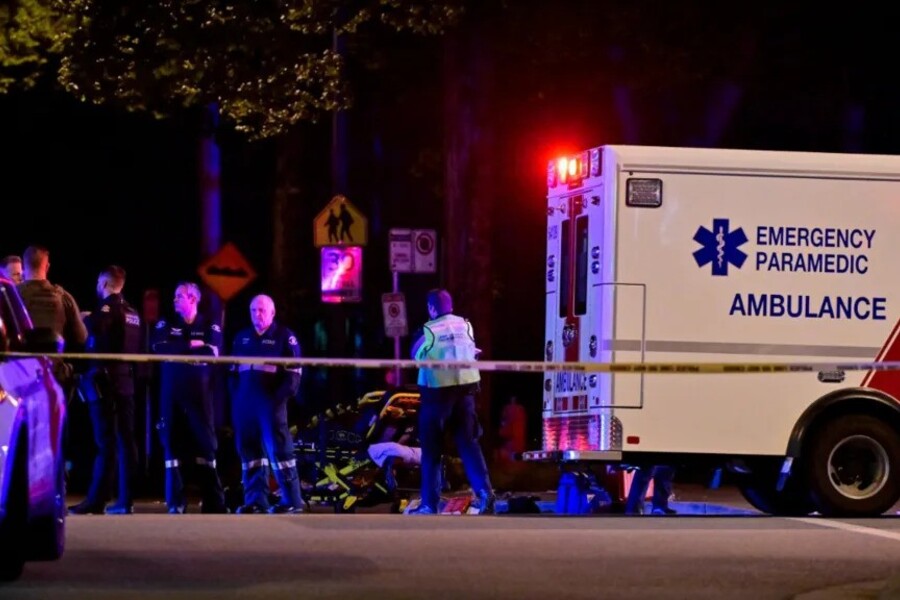Authorities in Vancouver have charged a 30-year-old man with multiple counts of murder following a devastating attack at a Filipino cultural festival that left at least 11 people dead and dozens more injured.
The suspect, identified as Kai-Ji Adam Lo, was arrested at the scene and charged with eight counts of second-degree murder, with police indicating that additional charges are anticipated as the investigation continues. Lo made a court appearance following his arrest, though no plea was entered, according to court documents.
The attack took place on the evening of April 26 in Vancouver’s Sunset neighborhood, an area known for its large Asian-Canadian community. Hundreds had gathered for the Lapu-Lapu Day Block Party, a cultural celebration officially recognized by the government of British Columbia, honoring a Filipino hero known for resisting Spanish colonization.
Authorities said Lo drove a dark Audi SUV into the crowded festival area shortly after 8 p.m. local time, striking dozens of attendees. Witnesses described hearing the roar of an engine moments before the SUV plowed through the crowd. Online images captured a grim aftermath: victims lying on the pavement amid a scattering of debris, overturned strollers, and the remains of a festive evening abruptly shattered.
At least 24 people were hospitalized, some with critical injuries, and police warned that the death toll could climb further. Witnesses reported that festivalgoers quickly detained the suspect, holding him against a fence until police arrived.
Police said Lo has a significant history of interactions with authorities relating to mental health concerns. Investigators found no evidence suggesting terrorism or premeditated targeting of the Filipino community. Interim Chief Constable Steve Rai called the event “the darkest day in our city’s history,” noting there was no ongoing threat to the public. More than 100 police officers are involved in the ongoing investigation, working alongside provincial and federal agencies to support victims and their families.
The attack triggered an outpouring of grief and support across Canada and internationally. RJ Aquino, chair of Filipino BC, said, “The community will feel this for a long time. We are grieving, but we see and hear the support from around the world.”
The timing of the tragedy, just two days before Canada’s federal election on April 28, added to its national significance. Prime Ministerial candidate Mark Carney briefly suspended his campaign activities, expressing condolences in a public statement. “Last night, families lost a sister, a brother, a mother, a father, a son, or a daughter. Those families are living every family’s nightmare,” Carney said.
British Columbia Premier David Eby, speaking near the site of the attack, struggled to contain his emotions as he condemned the violence and pledged his government’s full support to the victims. “It is hard not to feel rage,” Eby said. “But we must turn that rage into unity and strength for the community.”
Festival attendees, including public figures such as provincial legislator Mable Elmore, shared emotional recollections of the day’s earlier celebrations — a scene of joy and cultural pride that quickly turned into horror. “Everybody was happy and getting ready to go,” Elmore said through tears. “And that’s when the incident happened.”
The Lapu-Lapu Day Block Party has become a key celebration for the Filipino-Canadian community, featuring live performances, traditional cuisine, and cultural displays stretching across several city blocks. It was meant to honor Datu Lapu-Lapu, a 16th-century Filipino chieftain celebrated for resisting Spanish conquest. Official recognition of the day last year was seen as an important step in acknowledging the contributions of Filipino-Canadians, one of the province’s largest immigrant groups.
While mass casualty attacks are relatively rare in Canada compared to the United States, this incident evokes painful memories of past vehicular assaults, including a 2021 attack on a Muslim family in London, Ontario, and a 2018 van attack in Toronto that killed 10.
The Vancouver tragedy has reignited discussions about public event security, mental health intervention, and community resilience. Authorities have acknowledged the absence of heavy vehicle barriers or a dedicated police presence at the festival, details now under renewed scrutiny.
As the investigation continues and further charges are considered, Vancouver and the broader Canadian community are left mourning — but also demonstrating resilience, unity, and an unwavering commitment to support the victims and their families.
